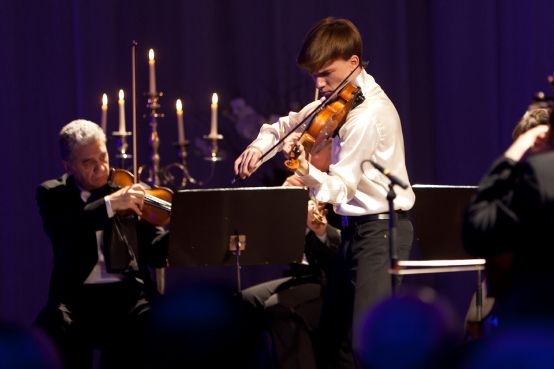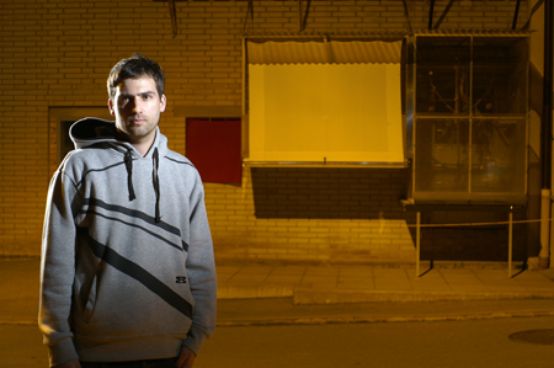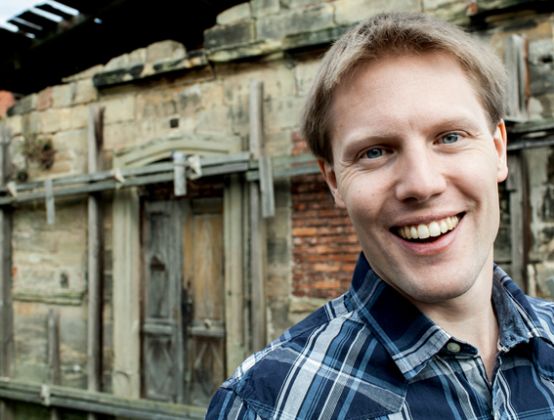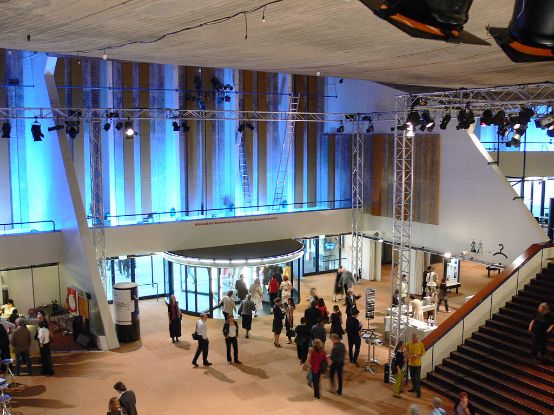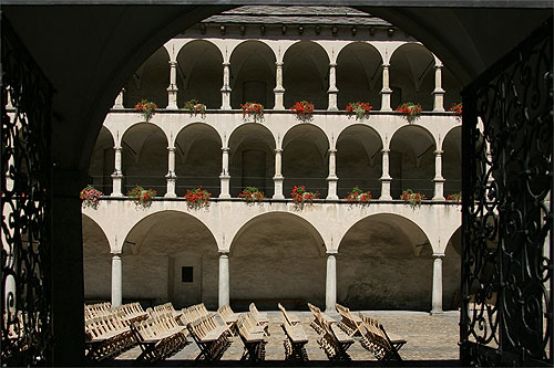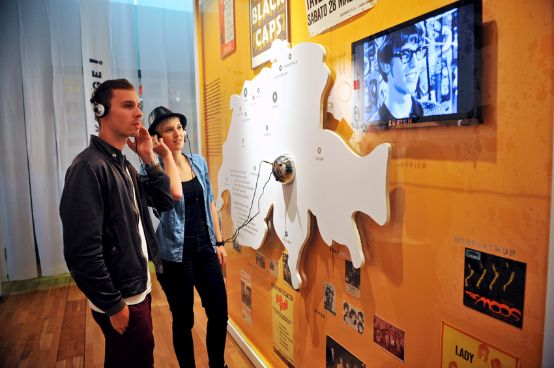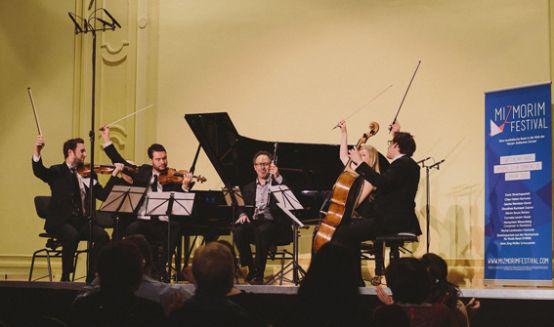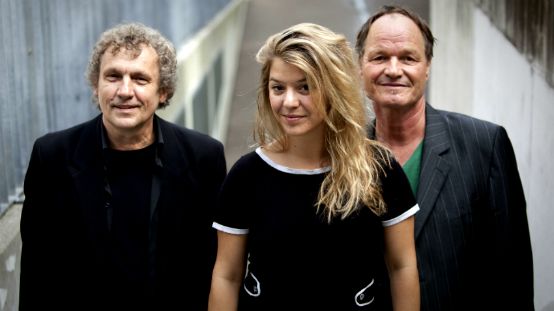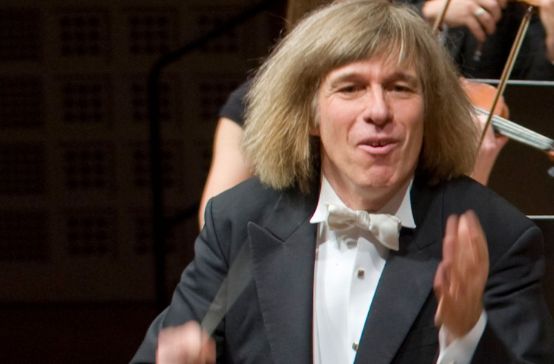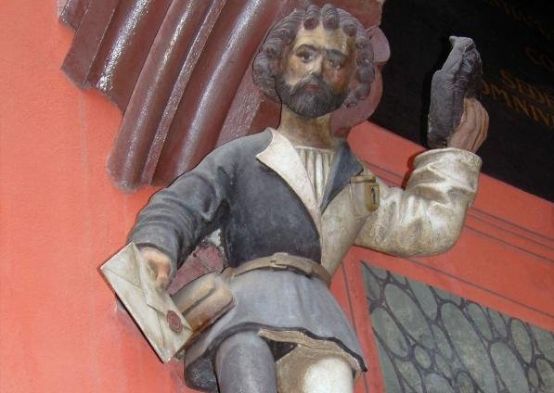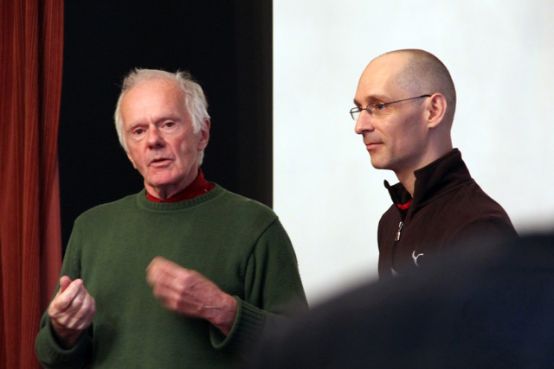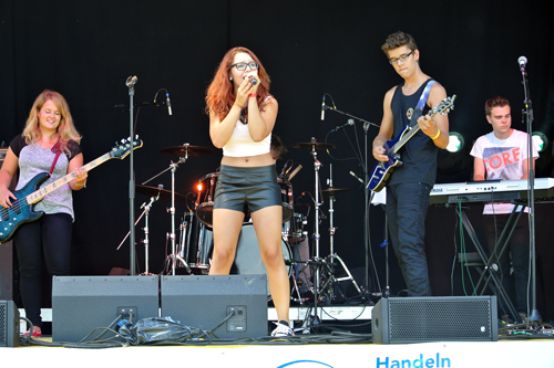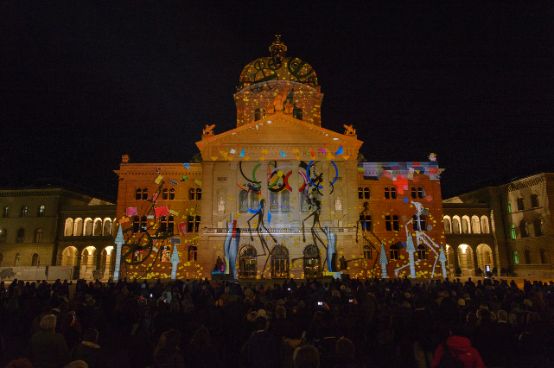During the guided tour through Oh Yeah! Pop music in Switzerland advises pop chronicler Sam Mumenthaler: "Plug in your headphones and listen, by all means." The exhibition at the Museum of Communication in Bern is accessible to visitors not least thanks to extensive audio documents - the organizers have compiled almost 420 minutes of audio material. You can immerse yourself in pop history at numerous stations. You can listen to forgotten Swiss singles such as Honolulu Rock (1960) by the Honolulu Girls or Be Bop A Lula (1963) by Les Faux Frères from French-speaking Switzerland. Or listen to the comments of radio presenter François Mürner - nicknamed FM - who insists, among other things, that the pop of the nineties was particularly creative.
Make audible
Spread over two rooms and more than 350 square meters, the show also features original objects. You will come across an amplifier by Jimi Hendrix, Hazy Osterwald's trumpet called "Susy" and a bloodstained setlist by Züri West. Mumenthaler, drummer with the Bernese dialect rockers until 1986, remembers the circumstances: "At a concert in Schaffhausen, singer Kuno Lauener jumped up, hit the low ceiling, tore his rind and had to go to hospital briefly." However, the aim of the two curators, Kurt Stadelmann and Sam Mumenthaler, was not just to collect countless memorabilia, but to focus on pop, rock and punk. Unlike the special exhibition presented last year by the Basel Museum of Music pop@basel (see SMZ 12/2013, S. 26), the focus in Bern is not local, but national - and extremely broad. "We didn't want to make an exhibition about any stars," emphasizes Stadelmann. Oh Yeah! Pop music in Switzerland lives from the sound and the video clips shown. "We want to trigger emotions."
The question of how to show music proved to be the biggest challenge during the preparations, says Mumenthaler. The technical solution that would allow visitors to simply plug in their headphones without having to press a start button was not available on the market. Nevertheless, the Museum of Communication managed to pull it off.
Twenty years ago, such a show would not have been feasible, Stadelmann is certain. Probably also because the media hardly ever took a serious look at the subject of pop until well into the 1980s. When private radio stations emerged in Switzerland 30 years ago and both DRS3 and its counterpart in French-speaking Switzerland, Couleur 3, were founded, a breath of fresh air arose. This led to a professionalization of the music scene - at all levels. A letter like the one written by the Honolulu Girls, Switzerland's first girl group, in 1960 would have been unthinkable 25 years later: The four girls from Basel asked the radio studio in their home town - almost submissively - if they could play on the station one day.
Set accents
Because the topic of pop is almost immeasurable, it was important to make choices and set accents. "We deliberately didn't set out any theses in advance," says Mumenthaler. Although these did emerge in the course of the preparations, they were never brought to the fore. The musicians' point of view was also omitted. "We don't want to convey how a pop song is created, but rather to work through it historically." Because a little bit of local color is allowed Oh Yeah! Pop music in Switzerland and the Bernese scene. While Mani Matter had a difficult time with rock fans for a long time, Polo Hofer knew how to use the boost from the Zurich Minstrels and their hit Grüezi wohl, Mrs. Stirnimaa to use it: He succeeded in making dialect acceptable in rock. Subsequent artists such as Stiller Has, Patent Ochsner and Gölä have benefited and continue to benefit from this pioneering work.
But whether in Bern, Zurich or Basel: "Pop has to do with youth. You don't talk about songs, you make them," says Mumenthaler. Of course, pop is no longer just the prerogative of young people. This can be seen from the fact that Kuno Lauener has been in the business since 1984 and Stephane Eicher even four years longer. Oh Yeah! Pop music in Switzerland doesn't judge. Musical lightweights such as DJ Bobo or Peter, Sue & Marc can be found alongside Yello or the Young Gods, who are among the few ground-breaking pop artists that our country has produced to date. The exhibition does not conceal the fact that Switzerland is a hotbed of copyists. Trends are not created in this country, they are imported.
Dig yourself
There is no in-depth examination of the last 15 years of music. The reason for this is the lack of distance, say the two exhibition organizers. Instead, they have limited themselves to 42 music videos from this period, from King Pepe to Heidi Happy. Visitors should make up their own minds. Oh Yeah! Pop music in Switzerland is like a well-stocked treasure trove in which you can rummage to your heart's content. Golden records, music magazines and concert posters bring the past to life. You discover, see and hear - and the planned hour-long visit turns into three in no time at all. After 60 years, pop may have lost its subversive power and social relevance, but it continues to fascinate. Or as François Mürner says? "Pop culture is simply sexy."
The exhibition can be seen until July 19, Tuesdays to Sundays from 10 am to 5 pm.
As the museum announced on June 4 Oh yeah! extended until August 30, 2015. The reason for this is the extraordinary success of this exhibition.
www.mfk.ch
